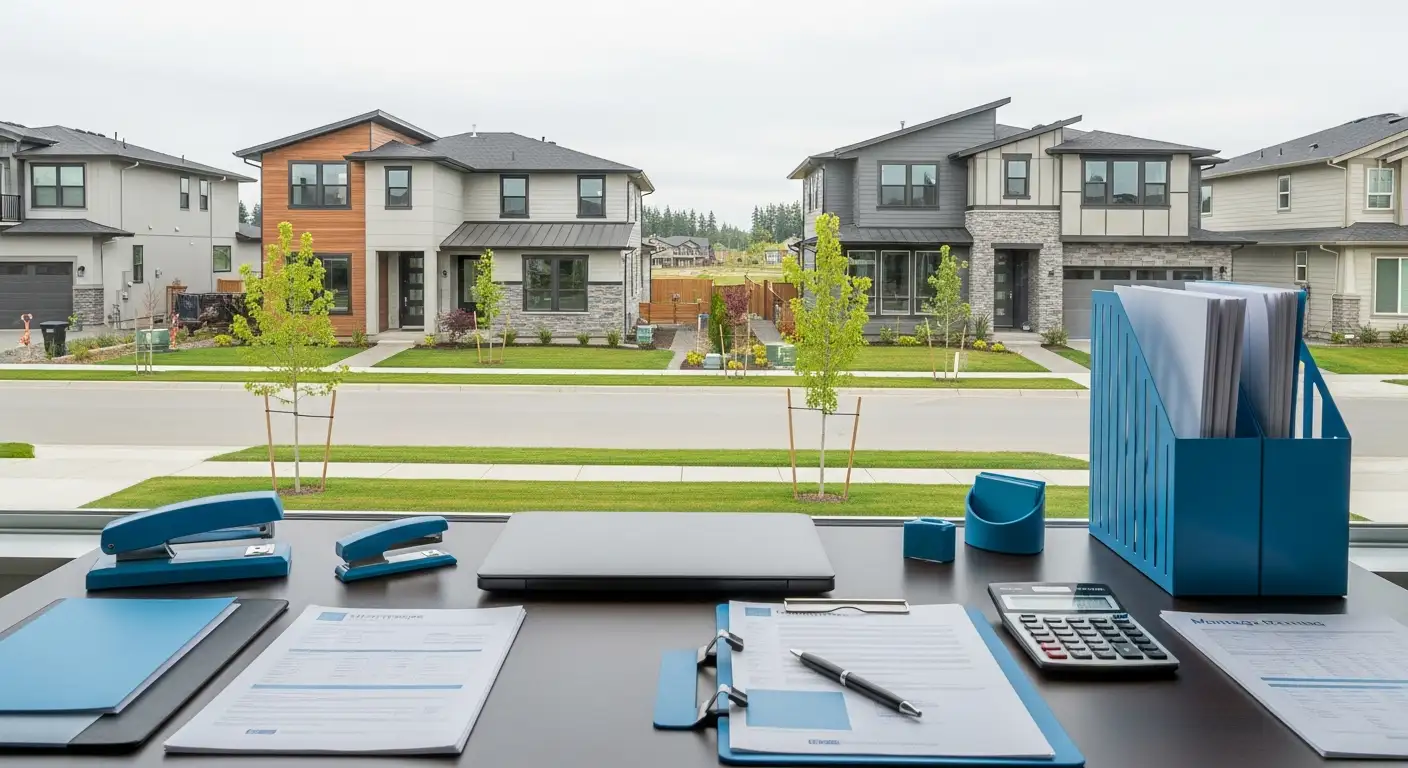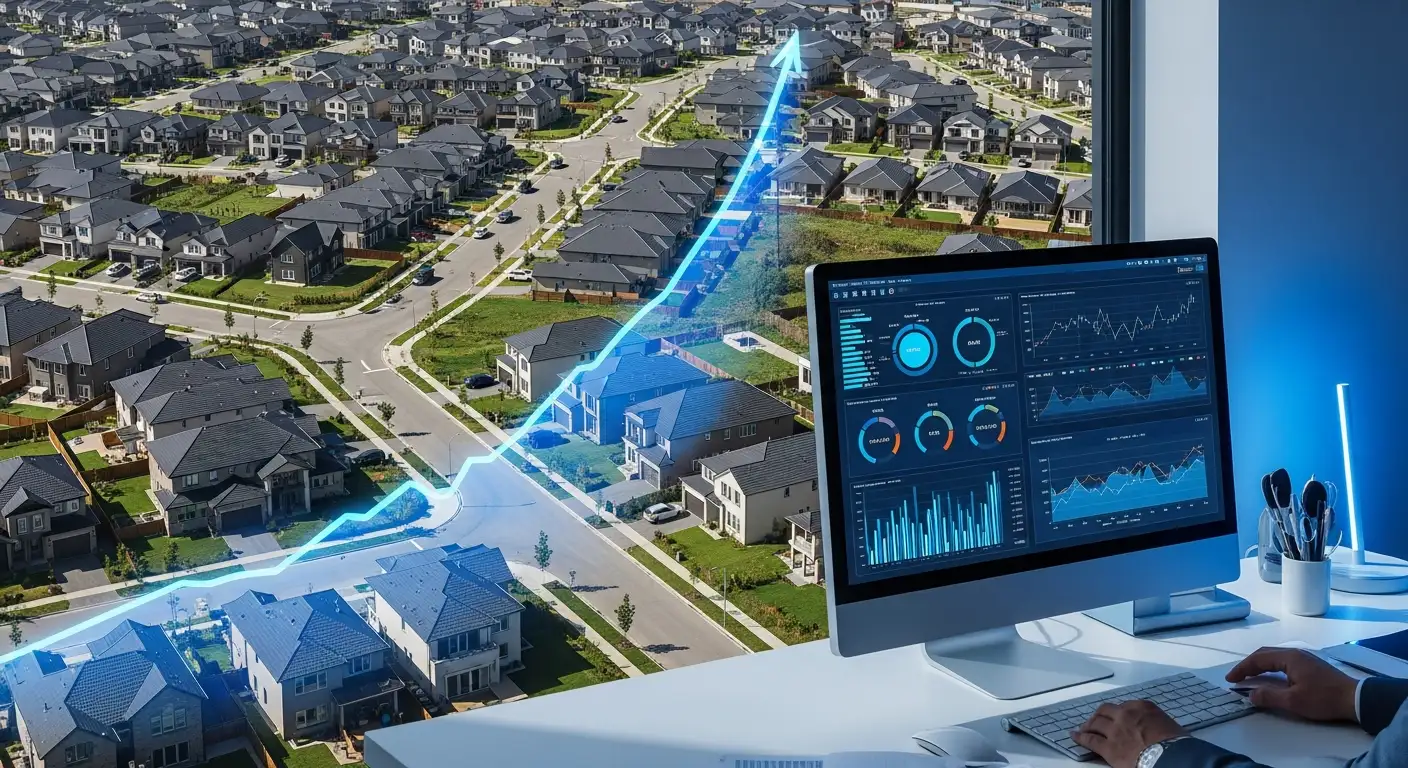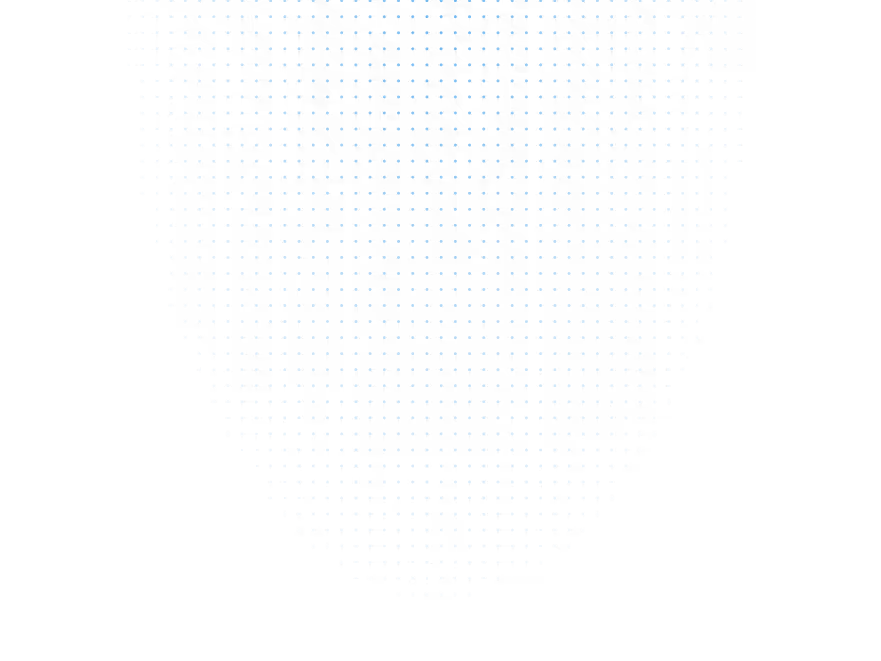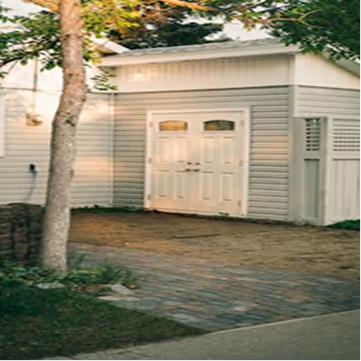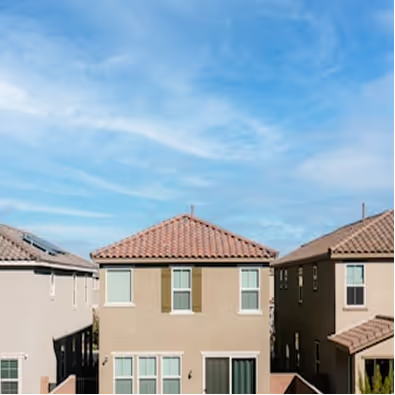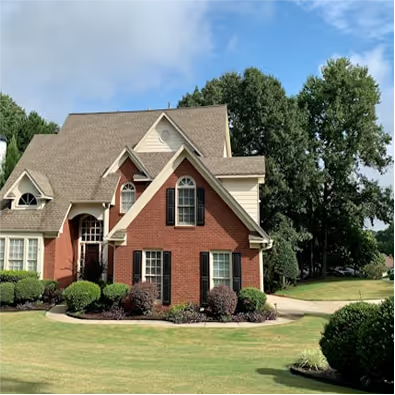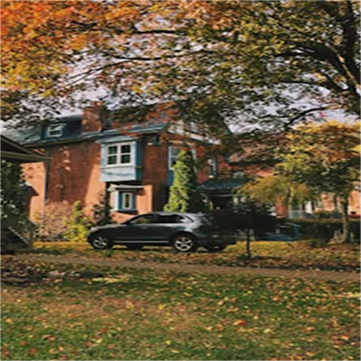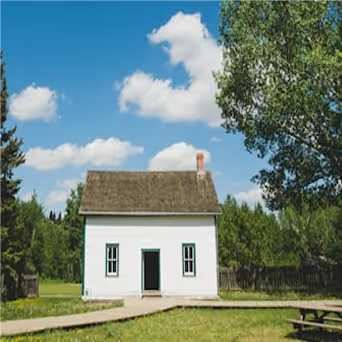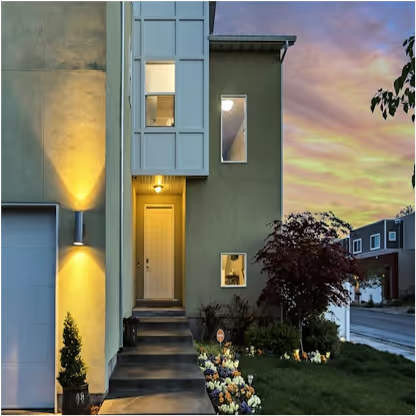Unlocking Your Path to Modular Homeownership
Modular homes are an increasingly popular choice for modern homeowners, offering customization, energy efficiency, and high standards of construction. As their popularity grows, so does the relevance of understanding the various mortgage options available to finance these homes. Whether you’re considering purchasing a modular home on a permanent foundation or exploring financing for a home built on a chassis, many options exist to suit different financial situations and preferences.
Different Mortgage Options for Modular and Manufactured Homes
What are the available mortgage options for financing modular or manufactured homes?
When it comes to financing modular and manufactured homes, there are several options tailored to different types of homes and homeowner needs. Understanding these options can help buyers choose the most suitable solution for their situation.
Conventional Loans — These are traditional mortgage loans often used for modular homes that meet specific criteria, such as being built on a permanent foundation, classified as real estate, and complying with local building codes. They typically require a low down payment, sometimes as low as 5%, and are similar to financing a site-built home.
FHA Loans — The Federal Housing Administration offers two main programs for manufactured homes:
- FHA Title I loans: Designed to finance both the purchase of manufactured homes and related land, these loans are available for new or used manufactured homes, including those placed in mobile home communities with lease agreements.
- FHA 203(b) loans: These are fixed-rate mortgages for manufactured homes that meet HUD standards and are permanently attached to a foundation, making them eligible for traditional mortgage financing.
VA Loans — Backed by the U.S. Department of Veterans Affairs, VA loans can finance manufactured and modular homes on land that the buyer already owns. They often offer up to 100% financing, requiring no down payment, but the home must meet certain standards.
USDA Loans — Offered by the U.S. Department of Agriculture, USDA loans can finance manufactured homes with no down payment, provided the property is located in eligible rural areas and the home meets criteria like being built after June 15, 1976, and on a permanent chassis.
Fannie Mae and Freddie Mac Programs — These government-sponsored enterprises offer specialized programs:
| Program | Features | Eligibility Requirements | Additional Notes |
|---|---|---|---|
| MH Advantage (Fannie Mae) | Low down payments, modern features, similar to site-built homes | Home must qualify for MH Advantage, appraisal based on comparable homes | Allows single-width and some homes with CHOICEHome labels |
| CHOICEHome (Freddie Mac) | Financing for modular and manufactured homes meeting site-built standards | Meets Freddie Mac criteria, appraisals may require site-built comparables | Similar to traditional financing, flexible options |
Chattel Loans — These are personal property loans suitable for mobile homes that are not permanently affixed or on leased land. They usually have higher interest rates, shorter terms, and a faster approval process. Chattel loans are ideal if the home cannot qualify for traditional financing.
Summary Table of Loan Types
| Loan Type | Down Payment | Home Eligibility | Land Requirement | Typical Loan Term | Notes |
|---|---|---|---|---|---|
| Conventional | Usually 5% or less | Permanently affixed, meets local standards | Usually requires owned land | 15-30 years | Similar to traditional home financing |
| FHA Title I | As low as 1-10% | Mobile, manufactured homes, can include land | Can include leased land | Up to 20 years | Flexible credit requirements |
| FHA 203(b) | 3.5% minimum down payment | HUD standards, attached to foundation | Usually owned land | 15-30 years | Fixed-rate mortgage |
| VA Loans | 0% down | Already owned land not always required | Not always required | Up to 30 years | No down payment, eligible for veterans |
| USDA Loans | 0% down | Rural areas, meets construction standards | Usually owned land | Up to 30 years | Limited to rural zones |
| Fannie Mae & Freddie Mac | Varies (as low as 3%) | Meets specific standards like MH Advantage or CHOICEHome | Usually owned land or suitable leasehold | Up to 30 years | Special programs for manufactured housing |
| Chattel Loans | Usually higher interest | Mobile homes not permanently attached | No land required | 5-15 years | Higher interest, personal property loan |
Comparing These Options
Selecting the right loan depends on factors like whether the home is permanently attached, land ownership, credit score, and personal preferences. Modular homes built to code and classified as real estate often qualify for standard mortgage loans with low down payments. Manufactured homes, especially on leased land or not permanently affixed, might require chattel loans or specialized programs like FHA Title I.
Always review the eligibility criteria, interest rates, and loan terms before committing. Consulting with lenders experienced in manufactured and modular home financing, like GRB Bank and others, can further clarify the best fit for your needs.
Eligibility and Qualification Standards

What are the eligibility requirements for mortgage programs for modular homes?
When applying for mortgage programs for modular homes, there are several important eligibility criteria to consider. These programs generally require that applicants have a household income at or below 80% of the Area Median Income (AMI). This ensures that the homes remain affordable for low to moderate-income families and helps qualify applicants for favorable loan terms.
Another key requirement is the homeownership history. Prospective buyers typically must not have owned a home within the past three years, demonstrating their stability and ability to maintain homeownership.
The location and classification of the home also play a role. The property must be a manufactured or modular home built after a certain date, usually June 15, 1976, which aligns with HUD standards. The home needs to be situated within specified eligible areas, such as particular cities or regions, and the land ownership status—whether land is leased or owned—must be evaluated. Mortgage lenders assess whether the land is owned outright or leased, as this impacts financing options.
In addition to property-related criteria, applicants are often required to complete education to understand homeownership responsibilities. A HUD-approved homebuyer education course is typically mandatory.
To apply for these programs, applicants must submit various documentation including proof of income, credit reports, and other personal financial information. The mortgage itself is usually a fixed-rate loan or a variable ARM, secured by both the home and land, provided the home meets all specific criteria set by lenders such as Fannie Mae.
Overall, qualifying for a modular home mortgage hinges on income, credit history, location, and compliance with HUD and lender standards. Meeting these standards allows borrowers to access favorable financing options and move toward homeownership confidently.
The Process of Applying for a Modular Home Mortgage

What is the process for applying for a mortgage on a modular home?
Applying for a mortgage on a modular home involves several important steps. It begins with a thorough financial assessment, where you review your income, assets, debts, and credit history to determine your borrowing potential.
Next, prospective homeowners usually seek pre-approval from a lender. During this stage, you'll provide proof of income, employment status, and other financial documents. Pre-approval helps establish your budget and shows sellers and lenders that you are a serious buyer.
Once pre-approved, the formal application process begins. You will need to complete a detailed loan application and submit it along with required documentation such as recent pay stubs, bank statements, tax returns, and details about the modular home and land if applicable.
An essential part of the process is the appraisal and inspection. The appraisal assesses the home's value based on comparable sales and market conditions, ensuring the loan amount aligns with the home's worth. An inspection verifies that the home meets safety and construction standards, especially if it's a new build.
After the appraisal and inspection, the lender reviews all submitted documents. They evaluate your creditworthiness and the home's compliance with relevant standards, such as HUD standards for manufactured homes or local building codes for modular homes.
Finally, once everything is approved, you'll move on to finalizing the mortgage agreement. This step includes paying any down payment, signing the loan documents, and completing the closing process. Working with an experienced lender can streamline these steps and provide clarity on options like FHA, VA, USDA, or conventional financing.
Overall, applying for a modular home mortgage closely resembles traditional homebuying processes but requires attention to specific standards and documentation relevant to modular construction.
Financial Considerations and Costs
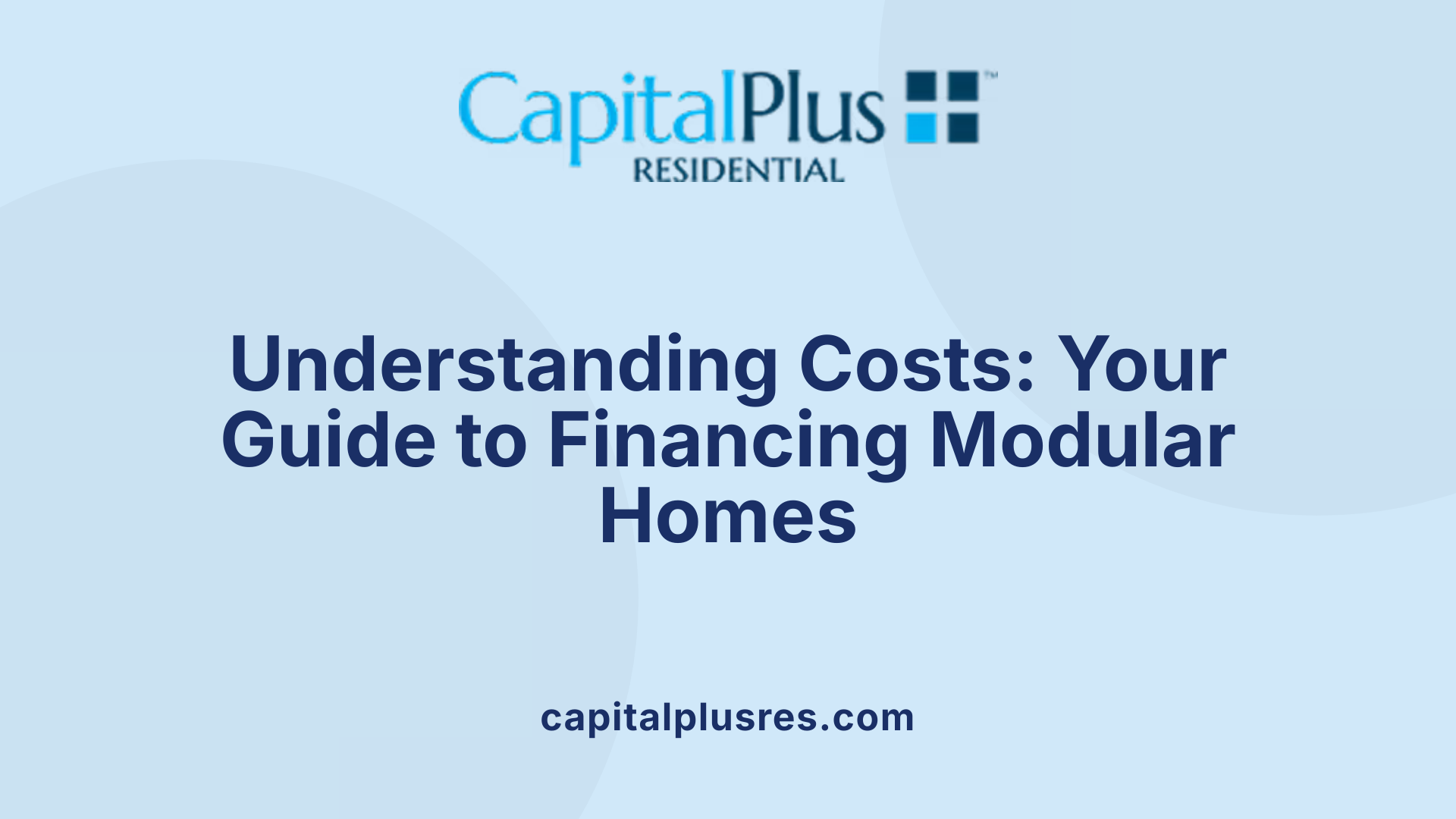
What are the costs and financial considerations associated with financing modular homes?
Financing modular homes typically involves standard mortgage options since these homes are built on permanent foundations and classified as real estate. The purchase price for modular homes generally ranges from $160,000 to $320,000, depending on size, customization, and features.
In addition to the home’s price, other expenses include land acquisition, site preparation, utility connections, and any desired upgrades. These extra costs can significantly affect the overall investment.
Down payment requirements vary based on the loan type. For example, VA loans may not require a down payment, making them accessible to many qualifying veterans. FHA loans usually require about 3-5%, while some conventional or Fannie Mae loans also demand similar down payments. If land purchase or construction loans are involved, higher down payments might be necessary.
Interest rates for modular home mortgages generally hover around 6.92% or lower for borrowers with good credit. Those with less-than-ideal credit scores might face higher rates. Borrowers should also budget for additional costs such as loan origination fees, property taxes, insurance, and closing costs.
Long-term financial planning is essential. Borrowers need to consider the loan term duration, whether they plan to own the land outright or lease it, and how these factors influence monthly payments and overall costs. Sometimes, bundling the financing for both the home and land can lead to more favorable interest rates and improved loan terms.
Overall, understanding these financial components helps in making informed decisions and planning for the ongoing costs of homeownership on a modular property.
Government-Backed and Special Resources for Modular Homes

Are there any government-backed mortgage options available for financing modular homes?
Yes, there are several government-backed mortgage options designed to assist buyers in financing modular and manufactured homes. These programs help make homeownership more accessible by offering favorable terms and relaxed eligibility requirements.
The FHA Title I Manufactured Home Loan Program is a prominent option. It provides loans that can be used to purchase or refinance manufactured homes, as long as these homes meet specific standards, including proper installation, manufacturer’s warranty, and compliance with HUD standards. Title I loans can finance units, land, or both, and are available through FHA-approved lenders.
For veterans and active-duty military members, VA loans offer another viable option. These loans can finance manufactured or modular homes located on land already owned by the borrower, sometimes with up to 100% financing and flexible credit requirements.
Fannie Mae also plays a vital role through its MH Advantage program, which offers conventional loans on manufactured homes, provided the homes are titled as real estate. MH Advantage homes often resemble traditional site-built homes and can be financed with low down payments and possibly lower interest rates.
Freddie Mac provides additional options like the Home Possible mortgage program. This program supports the purchase and refinancing of manufactured homes meeting site-built home standards, with low down payments and flexible lending criteria.
Overall, these government-backed programs expand access to financing for modular and manufactured homes, making it easier for qualified buyers to realize their homeownership goals. Borrowers should consult with approved lenders to identify the best funding options for their specific circumstances.
Making an Educated Decision for Your Modular Home Financing
Securing the right mortgage for your modular home requires thorough understanding of available options, eligibility criteria, application processes, and associated costs. From traditional fixed-rate loans to specialized programs backed by government agencies, a wide array of financing opportunities exists to suit various financial circumstances. Educating yourself through trusted resources and working with experienced lenders can help streamline your journey toward homeownership.
References
- Manufactured Homes Mortgage Programs
- How to Finance a Mobile or Manufactured Home
- Manufactured home loan programs
- Manufactured Home Financing - MH Advantage
- Modular Home Financing
- Manufactured Homes Mortgages
- Financing Manufactured (Mobile) Homes (Title I) – HUD
- 21st Mortgage: Manufactured and Mobile Home Lenders
- Manufactured Home Financing - MH Advantage
- Everything you should know about financing a modular home
